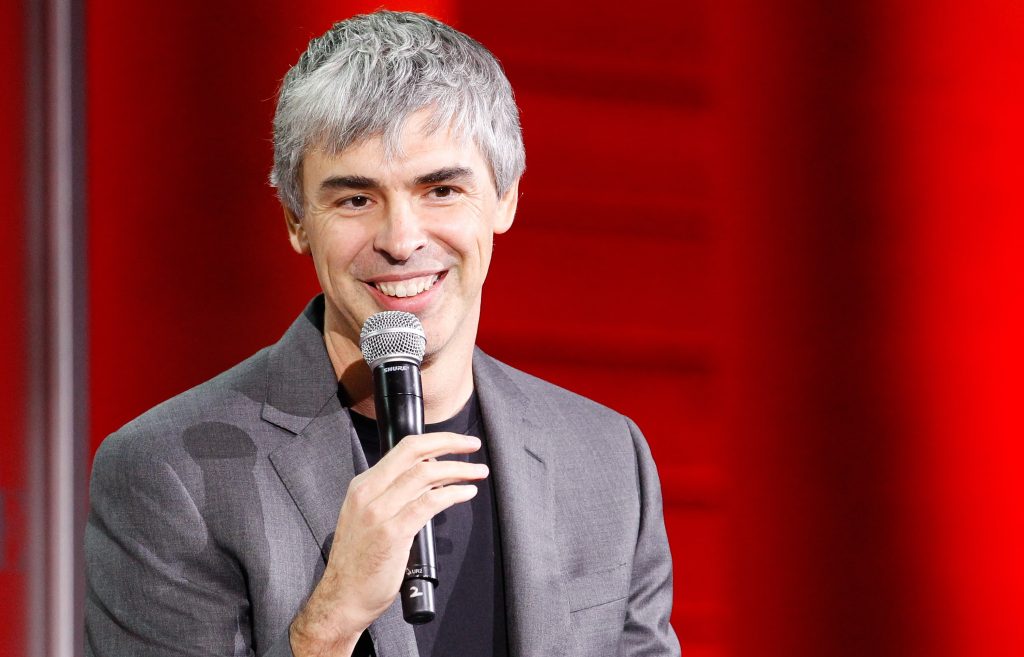Since its inception, Google, founded by Larry Page and Sergey Brin in 1998, harbored ambitions for unparalleled growth, reflected in its name derived from “googol,” representing the vastness of possibilities with a numeral followed by 100 zeros. Over the years, Google has transcended its origins as a mere search engine to become an integral part of the digital landscape, under the umbrella of its parent company, Alphabet Inc., valued at a staggering $1.9 trillion.
Alphabet’s dominance extends beyond the confines of the internet, positioning itself as a leader in innovation across various sectors. Fortune’s 2024 Most Innovative Companies list ranks Alphabet at the top, highlighting its diverse portfolio spanning Google Services, Google Cloud, and Other Bets. From household names like Android, Chrome, and YouTube to cutting-edge advancements in AI research through DeepMind and self-driving technology with Waymo, Alphabet’s influence is ubiquitous.
Larry Page, one of the masterminds behind Google’s success, stands as the eighth-richest individual globally, with a net worth of approximately $136 billion. Having served as CEO of Google and later Alphabet, Page continues to wield considerable influence as a board member and major shareholder, alongside co-founder Sergey Brin. Their collaborative leadership has been instrumental in shaping Alphabet’s trajectory and consolidating its position as a powerhouse in the tech industry.
Despite Alphabet’s unprecedented growth, Page remains mindful of the wisdom imparted by his mentor, the late Steve Jobs. In a poignant meeting towards the end of Jobs’ life in 2011, Jobs emphasized the importance of focus, cautioning against diluting efforts across a multitude of projects. Jobs urged Page to streamline Alphabet’s endeavors, echoing his own experiences at Apple and warning against the pitfalls of losing sight of core objectives.
Page, acknowledging the significance of Jobs’ counsel, has since reflected on the necessity of prioritization and strategic focus in driving sustained success. He concurred with Jobs’ assessment that excessive diversification could undermine innovation and result in products that are merely adequate rather than exceptional. Page’s commitment to maintaining clarity of vision and strategic alignment underscores his dedication to steering Alphabet towards continued growth and excellence.
As Larry Page celebrates his 51st birthday, his journey as a visionary leader continues, guided by the invaluable lessons imparted by Steve Jobs and fueled by an unwavering commitment to innovation and excellence. Through his leadership, Alphabet remains poised to shape the future of technology and redefine the boundaries of possibility in the digital age.
Despite initially heeding Steve Jobs’ advice to focus on a select few products, Larry Page and Sergey Brin found themselves drawn to a broader vision for Alphabet, Google’s parent company. While acknowledging Jobs’ wisdom, Page believed that Alphabet’s potential transcended narrow confines, encompassing a diverse array of ventures, including ambitious projects like glucose-monitoring contact lenses.
Alphabet was conceived as a container for Google’s future endeavors, providing a platform for innovation across various industries. Page saw Alphabet as a cohesive ecosystem where ventures in energy, telecommunications, transportation, and beyond could thrive synergistically. This expansive vision stood in contrast to Jobs’ emphasis on focus, leading Page to quip about the limitations of restricting a large company to just a handful of pursuits.
In a fireside chat with Khosla Ventures in 2014, Page expressed his belief in the interconnectedness of Alphabet’s ventures, highlighting the company’s capacity to pursue multiple avenues of innovation simultaneously. He playfully jabbed at Jobs, suggesting that the notion of restricting a company of Alphabet’s scale to a limited number of endeavors seemed “kind of stupid” to him.
The choice of the name “Alphabet” reflected Page’s desire for a brand that resonated with employees and investors, evoking a sense of pride and inclusivity. While eschewing excessive consumer branding akin to Google, Page envisioned Alphabet as a platform for companies to align with and be a part of, rather than a consumer-facing entity like Google.
Despite his pivotal role in shaping Alphabet’s vision, Page humbly acknowledged that he didn’t take credit for the name itself, emphasizing the collaborative nature of the decision-making process within the company. This ethos of inclusivity and shared ownership underscored Page’s leadership approach, fostering a culture of innovation and collaboration within Alphabet’s diverse ecosystem.
